May 20, 2022 | Nora Samaranayake
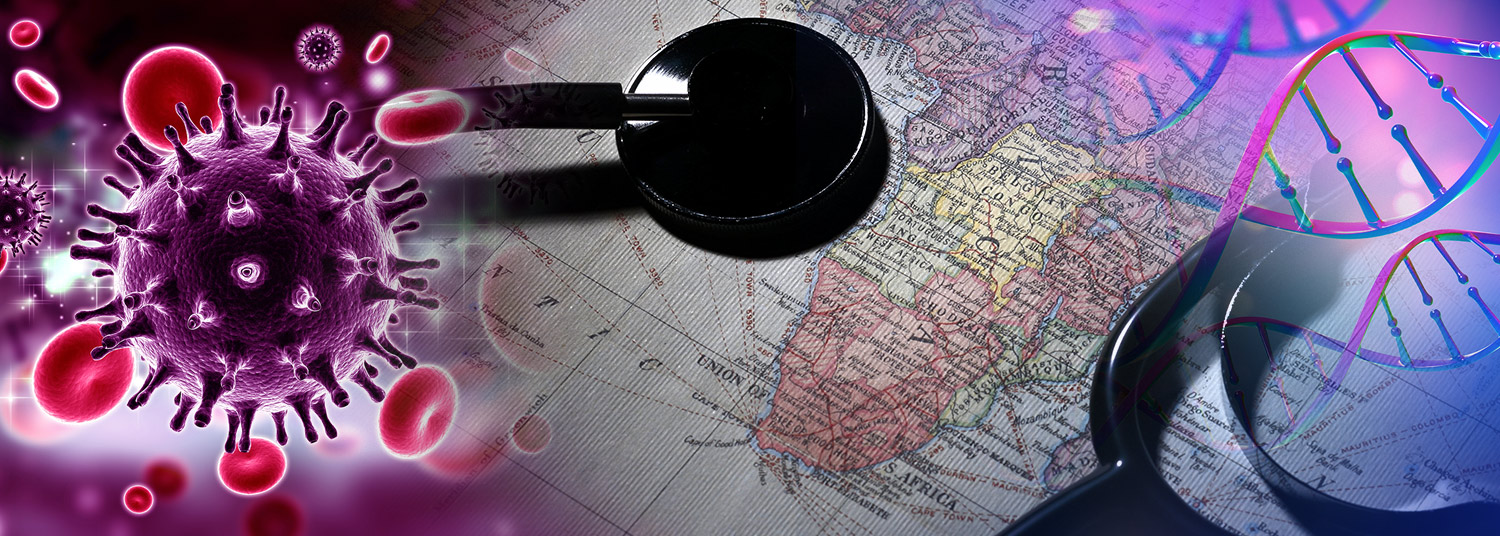
University of Maryland School of Medicine (UMSOM)’s Institute of Human Virology (IHV) researchers received funding from the National Institutes of Health’s National Institute of Allergy and Infectious Diseases (NIAID) for $2.7 million to study genetic changes in two genes from the HIV-1 virus that may make it resistant to antiretroviral therapy. The study, named INSPIRE, will analyze genetic variation in types of HIV circulating in a handful of African countries that will help to better understand the implications of these mutations and will improve clinical management of patients.
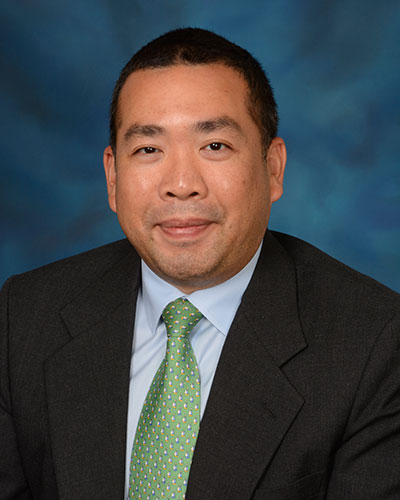 The HIV virus weakens the immune system when untreated, so the body cannot fight infections. Once a person tests positive for the virus, a health care provider prescribes an antiretroviral drug regimen that keeps the virus in check. However, if the patient does not tolerate the side effects, does not consistently take their medication, or if the virus no longer responds to the treatment, then the patient is switched to a second-line regimen with a different combination of drugs.
The HIV virus weakens the immune system when untreated, so the body cannot fight infections. Once a person tests positive for the virus, a health care provider prescribes an antiretroviral drug regimen that keeps the virus in check. However, if the patient does not tolerate the side effects, does not consistently take their medication, or if the virus no longer responds to the treatment, then the patient is switched to a second-line regimen with a different combination of drugs.
“Our study’s goal is to identify factors that predict when certain drugs found in the second-line regimens no longer suppress HIV infection and help guide third-line antiretroviral therapy strategies for resource-limited settings. This will be particularly important, as those people that do not respond to second-line regimens are at an increased risk for developing resistance to another drug in the third-line treatment regimen,” said one of the study principal investigators Man Charurat, PhD, MHS, Professor of Medicine at UMSOM and Director of the Center for International Health, Education, and Biosecurity (Ciheb) in the UMSOM’s Institute of Human Virology. Third-line drug regimens tend to be more expensive, have not been tested as extensively in children and pregnant women, so these medications are less condusive for use in lower income countries.
 Along with Dr. Charurat, Nicaise Ndembi, McS, PhD, Adjunct Associate Professor of Medicine at UMSOM and Scientist in the UMSOM’s Institute of Human Virology, will serve as the other principal investigator on the study. Dr. Ndembi also serves as the Chief Science Advisor at the Africa Centers for Disease Control and Prevention (Africa CDC).
Along with Dr. Charurat, Nicaise Ndembi, McS, PhD, Adjunct Associate Professor of Medicine at UMSOM and Scientist in the UMSOM’s Institute of Human Virology, will serve as the other principal investigator on the study. Dr. Ndembi also serves as the Chief Science Advisor at the Africa Centers for Disease Control and Prevention (Africa CDC).
Based on earlier findings by Dr. Ndembi, the researchers hypothesized that genetic sequences in the HIV genes env and gag could contain compensatory mutations that could evade antiretroviral treatment.
“Our studies demonstrated the first instance of new Env mutations conferring resistance to dolutegravir naturally in human cell lines in the laboratory. Our findings likely mean that these kinds of mutations may already be occurring outside of the laboratory in patient populations,” said Dr. Ndembi. Dolutegravir is a class of drug known as an integrase inhibitor that prevents HIV from inserting itself into a person’s DNA, which it needs to do in order to make more copies of itself. “We attribute the decreased effectiveness of the drug to the ability of the Env mutants to mediate highly efficient cell-to-cell transmission, increasing the multiplicity of infection” said Dr. Ndembi.
The env gene encodes the Env protein that helps HIV bind to and infect human cells. The thought is that new mutations could potentially make the Env protein more effective at doing its job binding and infecting making the virus more infectious.
A class of drugs in the second-line regimen that HIV develops resistance to is known as the protease inhibitors. These drugs stop HIV proteases from working, which have the job of cutting other HIV proteins as a final step in their production. The researchers theorize that mutations in the gag gene may be what leads to the drug resistance. The gag gene encodes the Gag protein, which is snipped by the protein cutter protease. Exactly how the gene mutations select for drug resistance though, is unknown.
The study participants will be composed of people from the AFRICOS study, which is part of the U.S. President’s Emergency Plan for AIDS Relief (PEPFAR), and the PASER study. The AFRICOS study enrolled 4,200 people, including 3,500 with HIV from sites in Kenya, Nigeria, Tanzania, and Uganda. The PASER study enrolled just over 3,000 participants with HIV/AIDS with the goal of tracking treatment resistance in patients from sites in Kenya, Nigeria, South Africa, Uganda, Zambia and Zimbabwe.
Dr. Charurat and Dr. Ndembi will work alongside researchers from the Amsterdam Institute for Global Health and Development – Amsterdam (AIGHD), U.S. NIH’s National Cancer Institute, Stanford University, U.S. Military HIV Research Program (MHRP) via the Henry M. Jackson Foundation, and University of Cambridge – United Kingdom.
 “Decades of research have provided life-saving treatment to a virus once thought of as a death sentence,” said E. Albert Reece, MD, PhD, MBA, Executive Vice President for Medical Affairs, UM, Baltimore, the John Z. and Akiko K. Bowers Distinguished Professor and Dean at the University of Maryland School of Medicine. “It is essential that we ensure that this virus remains treatable by staying on top of HIV’s mutation rate and responding with new combinations of medications if necessary.”
“Decades of research have provided life-saving treatment to a virus once thought of as a death sentence,” said E. Albert Reece, MD, PhD, MBA, Executive Vice President for Medical Affairs, UM, Baltimore, the John Z. and Akiko K. Bowers Distinguished Professor and Dean at the University of Maryland School of Medicine. “It is essential that we ensure that this virus remains treatable by staying on top of HIV’s mutation rate and responding with new combinations of medications if necessary.”
Almost 38 million people around the world live with HIV with about 75% of these people managing the disease with antiretroviral therapy, according to the U.S. Department of Health and Human Services.
About the Institute of Human Virology
Formed in 1996 as a partnership between the State of Maryland, the City of Baltimore, the University System of Maryland, and the University of Maryland Medical System, the IHV is an institute of the University of Maryland School of Medicine and is home to some of the most globally-recognized and world-renowned experts in all of virology. The IHV combines the disciplines of basic research, epidemiology, and clinical research in a concerted effort to speed the discovery of diagnostics and therapeutics for a wide variety of chronic and deadly viral and immune disorders, most notably HIV, the virus that causes AIDS. For more information, visit ihv.org and follow us on Twitter @IHVmaryland.
About the University of Maryland School of Medicine
Now in its third century, the University of Maryland School of Medicine was chartered in 1807 as the first public medical school in the United States. It continues today as one of the fastest growing, top-tier biomedical research enterprises in the world -- with 46 academic departments, centers, institutes, and programs, and a faculty of more than 3,000 physicians, scientists, and allied health professionals, including members of the National Academy of Medicine and the National Academy of Sciences, and a distinguished two-time winner of the Albert E. Lasker Award in Medical Research. With an operating budget of more than $1.3 billion, the School of Medicine works closely in partnership with the University of Maryland Medical Center and Medical System to provide research-intensive, academic and clinically based care for nearly 2 million patients each year. The School of Medicine has nearly $600 million in extramural funding, with most of its academic departments highly ranked among all medical schools in the nation in research funding. As one of the seven professional schools that make up the University of Maryland, Baltimore campus, the School of Medicine has a total population of nearly 9,000 faculty and staff, including 2,500 students, trainees, residents, and fellows. The combined School of Medicine and Medical System (“University of Maryland Medicine”) has an annual budget of over $6 billion and an economic impact of nearly $20 billion on the state and local community. The School of Medicine, which ranks as the 8th highest among public medical schools in research productivity (according to the Association of American Medical Colleges profile) is an innovator in translational medicine, with 606 active patents and 52 start-up companies. In the latest U.S. News & World Report ranking of the Best Medical Schools, published in 2021, the UM School of Medicine is ranked #9 among the 92 public medical schools in the U.S., and in the top 15 percent (#27) of all 192 public and private U.S. medical schools. The School of Medicine works locally, nationally, and globally, with research and treatment facilities in 36 countries around the world. Visit medschool.umaryland.edu
Contact
Institute of Human Virology
Nora Samaranayake
Chief Communications & Public Affairs Officer
(443) 823-0613 (phone)
(410) 706-1952 (fax)
nsamaranayake@ihv.umaryland.edu
Related stories
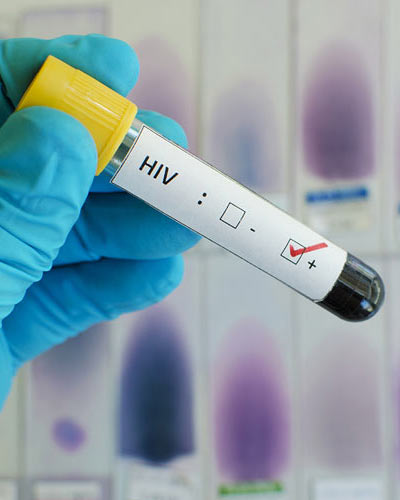
Monday, November 24, 2025
New Study Identifies Key Mechanism Driving HIV-Associated Immune Suppression
Researchers from the Institute of Human Virology (IHV) at the University of Maryland School of Medicine have discovered how a specific type of immune cell may contribute to the persistence of HIV infections. The finding offers new insight into why the virus remains difficult to cure even with effective antiretroviral therapy.
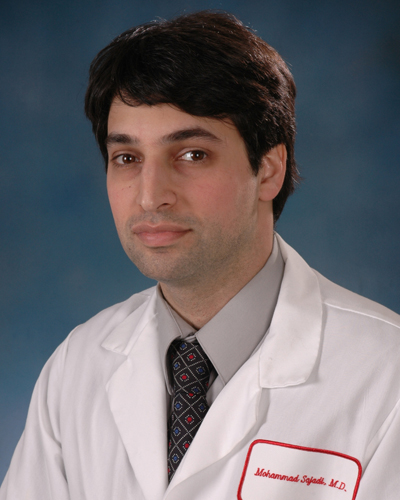
Wednesday, March 20, 2024
New Study Reveals Insights into Lack of Durability in COVID Antibody Response to Infections & Vaccines
Researchers at the Institute of Human Virology (IHV) at the University of Maryland School of Medicine published a new study in the Journal of Infectious Diseases investigating the short-lived antibody response following SARS-CoV-2, the virus that causes COVID.
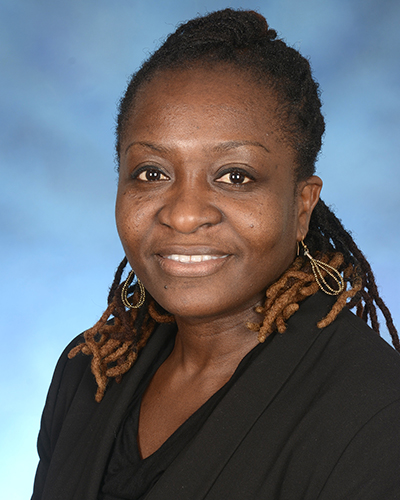
Thursday, June 22, 2023
STAT: A looming penicillin shortage threatens pregnant adults with syphilis and their newborns
Pfizer announced last week that it expects to run out of a key drug for treating syphilis in the near future — a looming problem that health professionals say could exacerbate syphilis rates, widen racial disparities in sexually transmitted diseases, and stymie global access to the antibiotic, especially within lower-income countries. The drug in question is Bicillin, an injectable, long-acting form of penicillin most commonly used to treat syphilis in adults as well as childhood infections.
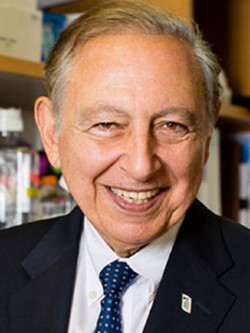
Thursday, April 27, 2023
Current HIV Research: Milestones: Dr. Robert C. Gallo and the Discovery of HIV-1
In this issue of the journal, we inaugurate a new series entitled “Milestones.” This series will encompass interviews with some of the pioneers that have laid the foundations of HIV research. Revisiting these landmarks while taking into account the prospect of their founders should be an inspiration to our readers, particularly the youngest generation. Nobody better than Dr. Robert Gallo could be the protagonist of the inaugural “Milestone,” with his recount of the discovery of HIV-1, the causative agent of AIDS, and the development of the first blood test to diagnose HIV-1 infection.
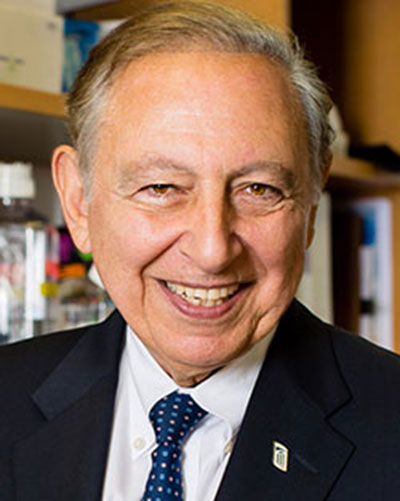
Wednesday, January 18, 2023
BBC: The scientist who smuggled HIV in her bag into her country to study it and save lives
Acquired immune deficiency syndrome, AIDS, had been recognized as a new disease in 1981, when an increasing number of young homosexuals died of unusual infections and rare cancers. It was also known to affect intravenous drug users and some were known to have contracted it through blood transfusions.

Friday, January 06, 2023
USA Today: Fact check: Research proves HIV is the cause of AIDS, contrary to viral claim
The claim: There is no proof HIV is the cause of AIDS. A Dec. 15 Facebook video shows Kary Mullis, a scientist known for denying the link between HIV and AIDS, claiming again there is no proof HIV is the cause of AIDS. The post was shared more than 1,000 times in a week. The clip comes from a 2009 documentary that promoted AIDS denialism, which has more than 300,000 views on YouTube.
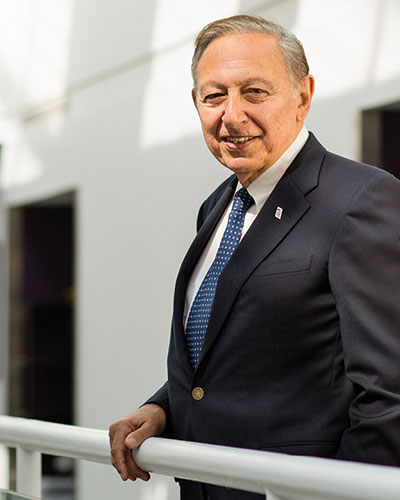
Wednesday, December 21, 2022
Lead Stories: Fact Check: Doctor Did NOT Say On Video That He Manufactured AIDS As Bio Weapon -- This Is A Soviet-Era Disinformation Hoax
Did an American doctor admit on video that he created the HIV and AIDS viruses in a U.S. military medical laboratory, Fort Detrick, so that they could be used as biological weapons for depopulating the world? No, that's not true: Dr. Robert Gallo, the doctor featured in the video, makes no such admission in the footage, and told Lead Stories that his scientific work was not part of any plan to weaponize HIV/AIDS. Historical records show that the claim is a well-documented hoax that dates to a Soviet disinformation campaign from the 1980s.
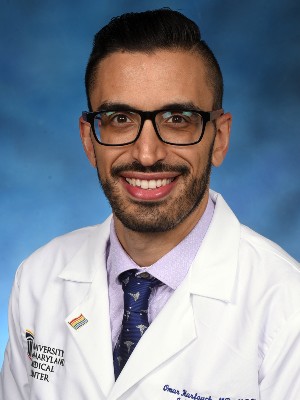
Thursday, December 01, 2022
Everyday Health: 10 Facts About HIV/AIDS Everyone Should Know
A basic understanding of HIV and AIDS can help dispel the myths, erase stigma, prevent virus transmission, and save lives — beginning with your own.
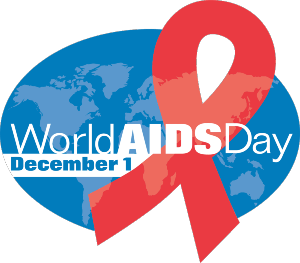
Wednesday, November 30, 2022
World AIDS Day: IHV’s International Leadership in Combatting AIDS
Each year, World AIDS Day is held on December 1 as an opportunity to unite in solidarity for the fight against HIV, honor people living with HIV, and those lost to an HIV/AIDS-related illness. The Institute of Human Virology (IHV), and particular, its Founder and Co-Director Robert C. Gallo, MD, The Homer & Martha Gudelsky Distinguished Professor in Medicine, and its many members have made many contributions and advancements towards preventing, treating, and developing a cure for HIV.
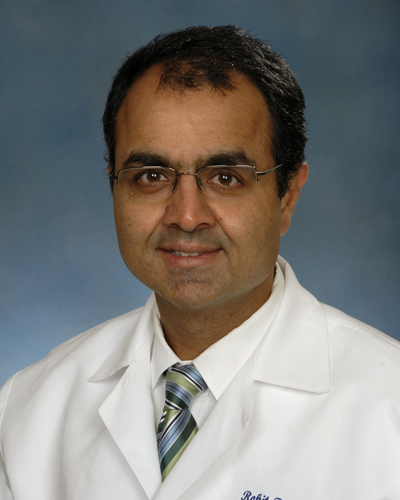
Wednesday, September 28, 2022
TheBody: What Is HIV Remission?
A cure for HIV remains elusive, but one word that is commonly heard is “remission.” Even though it doesn’t mean eradication of the virus, remission is a good thing. But what exactly is remission? Can HIV go into remission? And how does it differ from a cure? Generally, remission means that a disease has stopped being active but hasn’t necessarily been eliminated.
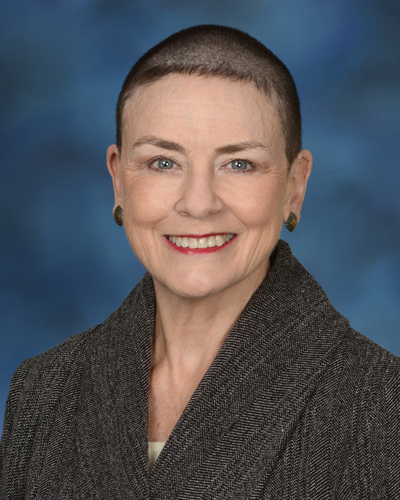
Wednesday, September 21, 2022
Baltimore Fishbowl: ‘AIDS ain’t over’: Supporters look back on 35 years at AIDS Action Baltimore
Six people were honored on Sunday for their support of AIDS Action Baltimore, as it marks its 35th anniversary. More than 150 people gathered at The Belvedere to mark the occasion and pay tribute to the honorees and executive director Lynda Dee.

Monday, September 19, 2022
TheBody: HIV Seroconversion: Timeline, Symptoms, Testing, and Treatment
There are several stages of HIV infection—from the initial exposure to the virus to the development of AIDS—but a lot of important changes happen during the earliest stage: seroconversion. So, exactly what is HIV seroconversion? It is the stage in which the immune system first starts to make antibodies to try to fight HIV after exposure. Once detectable levels of antibodies are produced, this is described as seroconversion.

Monday, September 19, 2022
TheBody: What Are the Chances of Getting HIV from One Exposure?
You had a one-night stand with someone of questionable HIV status. Now the panic begins. Could you have HIV after only one exposure? What are the odds?

Tuesday, July 19, 2022
Six-Country African Study Shows COVID-19 Can Be Dangerous in Pregnancy
A new study involving hospitalized women in six African countries from the University of Maryland School of Medicine’s (UMSOM) Institute of Human Virology (IHV) showed that pregnant women with SARS-CoV-2, the virus that causes COVID-19, had double the risk of being admitted to the intensive care unit (ICU) and four-times the risk of dying in-hospital than pregnant women who did not have COVID-19.
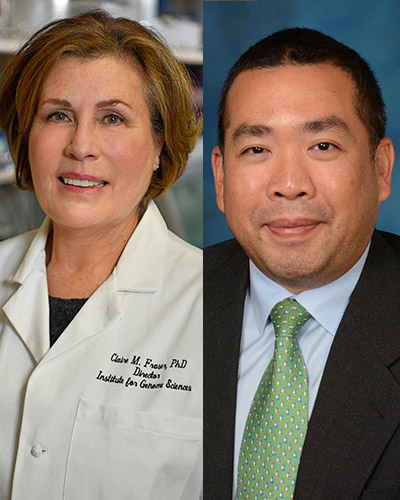
Thursday, June 23, 2022
New Research Shows Mothers’ HIV Status, Breastfeeding, and the Infant Gut Microbiome Can Have Long-Term Impact on Infant Health
Babies born to women with HIV often have poorer health and under-developed growth in the early months of life than infants born to women without the infection — even if those babies don’t contract HIV during birth, according to a new study by researchers at the University of Maryland School of Medicine (UMSOM)’s Institute for Genome Sciences (IGS) and Institute of Human Virology (IHV). The study also provides new insights into why these health issues often continue throughout the babies’ lives.

Tuesday, May 31, 2022
Medscape: Fatigue Affects Cognitive Processing Speed in the Aging HIV Population
Successful aging is something that most of us strive for. But with aging comes a pervasive condition called fatigue that, in many older adults, interferes with everyday functioning, mental health, social support, and overall quality of life. The relationship between fatigue and cognitive and functional impairment is one of particular interest in people living with HIV (PWH), a patient population that is disproportionately affected but whose lifespan now matches that of the general population.

Wednesday, May 25, 2022
NIH Awards Grant to Train Global Health Scientists in Low-and-Middle-Income Countries
Researchers at the University of Maryland School of Medicine (UMSOM) received a $5.5 million award from the National Institute of Health’s Fogarty International Center to help foster the next generation of global health scientists. The award entitled, “Integrated Network of Scholars in Global Health Research Training (INSIGHT)” will expand global health research across sub-Saharan Africa, South Asia, Latin America, and the Caribbean by providing one-year mentored research training to U.S. and lower-middle income country scholars.
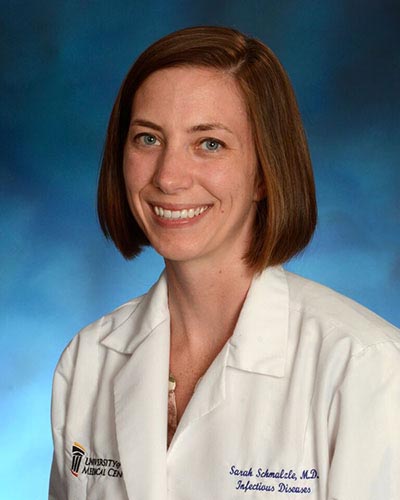
Tuesday, May 10, 2022
Medscape: Decentralizing PrEP Offers a Roadmap for Retention
Good solutions have great roadmaps. For HIV preexposure prophylaxis (PrEP), the road map might just be that of contraceptive care. Once an onerous process, over time contraceptive care exploded into a range of options across a broad landscape in terms of approach and accessibility. How then do organizations help vulnerable patients navigate their PrEP journeys using the contraceptive roadmap as a guide?
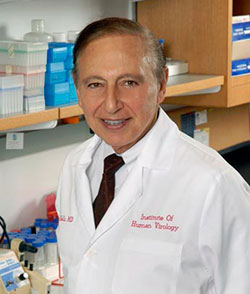
Friday, March 18, 2022
Deutsche Presse-Agentur: Virus hunt for decades: US researcher Robert Gallo turns 85
Few scientists in the world can come up with as many successes as Robert Gallo: The US researcher was involved in the discovery of the AIDS virus, found leukemia pathogens and other deadly viruses. Now he is 85 - and works even harder than before.
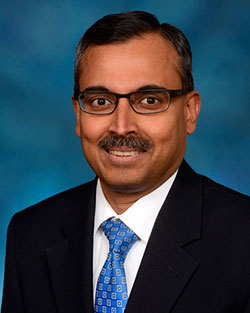
Thursday, March 10, 2022
Healthline: HIV-1 May Be More Virulent When Transmitted Through Penile-Vaginal Intercourse
HIV-1 can be transmitted through vaginal, anal, and oral sex, whether it’s with a same-sex or different-sex partner. But the risk of developing it seems to vary depending on how the disease is transmitted. In fact, the HIV virus may be more virulent when passed between male and female partners who have penile-vaginal sex than among men who have anal sex with other men, according to a new study from the Indian Institute of Science.
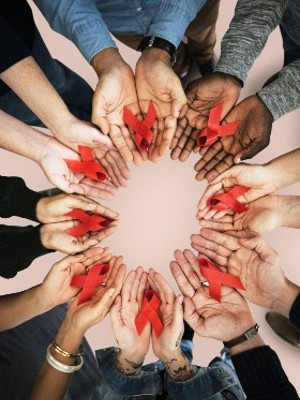
Thursday, March 10, 2022
HIV Plus: One Woman Shares Her Journey of Living with HIV for Over Three Decades
In honoring long-term survivors and National Women and Girls HIV Awareness Day on March 10, I had the opportunity to speak with Ms. Kathy Bennett. She is a 63-year-old Black woman who has been living with HIV for over 31 years. She recently led the longest running HIV support group in Maryland.
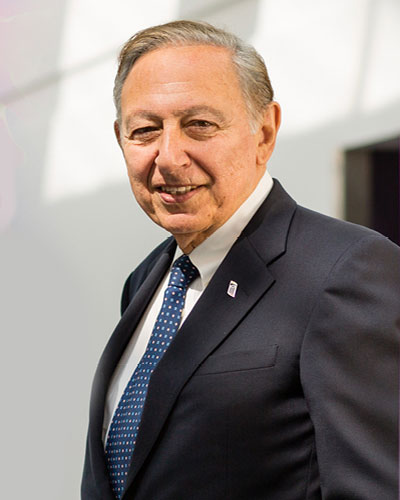
Wednesday, February 16, 2022
WBAL: Maryland HIV researcher on latest research: It's not a cure
Scientists used a cutting-edge stem cell transplant method to treat a woman's HIV, but a lead researcher in Maryland said it's too soon to celebrate. A U.S. woman is the third known person who is in HIV remission after receiving stem cells from umbilical cord blood, an American research team announced Wednesday.
.jpg)
Monday, February 07, 2022
The GW Hatchet: University administers first doses of mRNA HIV vaccine through Moderna partnership
GW was one of the first institutions in the country to administer doses of the first mRNA HIV vaccines to human test subjects late last month. The School of Medicine and Health Sciences and its Vaccine Research Unit collaborated with Moderna to test the safety of the vaccine and the immune responses of two participants in the phase 1 clinical trial.

Friday, February 04, 2022
WYPR: How the COVID pandemic rattled HIV testing
The COVID pandemic did not end the HIV-AIDS epidemic; it may have obscured it for a while, raising hurdles to getting tested for HIV.
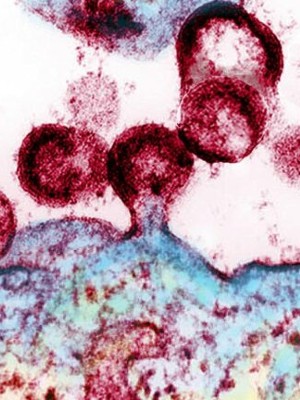
Wednesday, January 26, 2022
STAT: Early research suggests cancer drug could help flush HIV from its hiding spots
In a study published Wednesday in Science Translational Medicine, researchers looked at 32 patients that had both cancer and HIV and found that pembrolizumab, which revives the immune system and encourages it to attack tumors, also has the ability to flush HIV out of its hiding spot in immune cells.

Wednesday, November 10, 2021
Omaha World-Herald: UNMC researchers develop 'molecular scissors' to target HIV
Researchers at the University of Nebraska Medical Center have used a new method they’re calling a “molecular scissors” to nearly eliminate HIV embedded in the genetic material of human cells.

Tuesday, October 26, 2021
Correio Braziliense: "It's obvious that no vaccine causes AIDS," says one of the virologists who discovered HIV
The virologist, and one of the discoverers of HIV, speaks to Correio about statements by President Bolsonaro live on social media
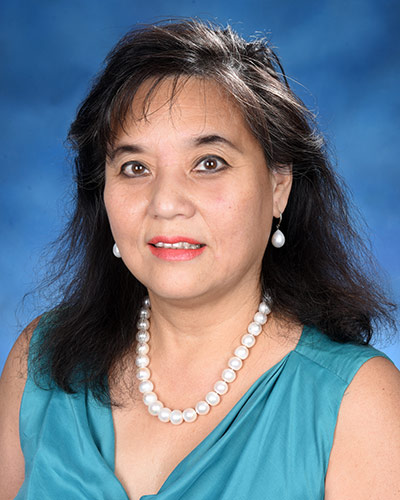
Tuesday, July 06, 2021
UM School of Medicine Researchers Receive NIH Avant-Garde Award for Out-Of-Box Concept to Cure HIV and Treat Co-Existing Addiction
Linda Chang, MD, MS, Professor of Diagnostic Radiology & Nuclear Medicine at the University of Maryland School of Medicine (UMSOM), received the National Institute on Drug Abuse (NIDA) 2021 Avant-Garde Award (DP1) for HIV/AIDS and Substance Use Disorder Research, a National Institutes of Health (NIH) Director’s Pioneer Award. This prestigious award supports researchers with exceptional creativity, who propose high-impact research with the potential to be transformative to the field. She will work with Institute for Human Virology (IHV) researchers for this project.
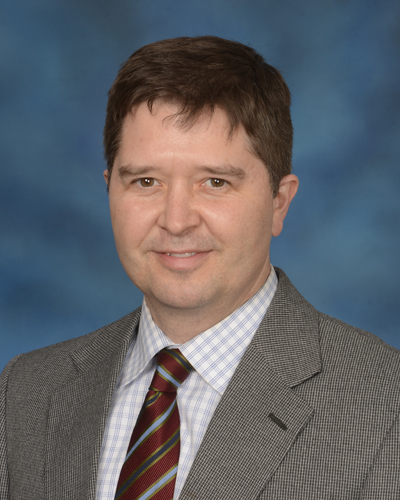
Monday, June 07, 2021
POZ: Integrate Adult and Pediatric HIV Care to Ease Youth Transition to Adult Care
Embedding an adult HIV medicine clinician and care navigator into a Baltimore pediatric HIV clinic led to 95% of young people remaining engaged in adult care one year after transition, according to a report in AIDS Care.
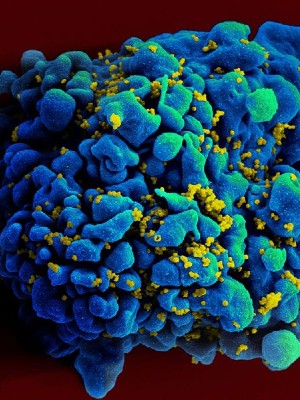
Thursday, May 27, 2021
Baltimore Sun: Maryland researchers study whether HIV cure can come from infusing patients with genetically modified ‘super T cells’
A week ago, a Washington, D.C., man in his 30s with HIV became the first person to be infused with a heaping load of his own genetically modified cells that a Maryland biotech firm believes one day could lead to the elusive cure for the disease. American Gene Technologies’ method involves taking T cells out of a person’s blood and genetically modifying them in the lab to resist infection before they are reinfused. C. David Pauza is the company’s chief science officer and a former professor and researcher at the University of Maryland School of Medicine’s Institute for Human Virology. Another center evaluating entering the study is Maryland’s Institute for Human Virology, confirmed its co-founder and director, Dr. Robert Gallo, who is internationally regarded for his role in discovering HIV and developing a blood test to detect it.

Thursday, April 01, 2021
A Statement from the Leadership of the University of Maryland School of Medicine’s Institute of Human Virology on the Passing of Dr. John Martin
The Institute of Human Virology at the University of Maryland School of Medicine mourns the passing of IHV 2014 Lifetime Achievement Public Service Awardee and 2017 Annual Marlene and Stewart Greenebaum Lecturer, John Martin, PhD. Dr. Martin was a leader in supporting access to life-saving anti-HIV medications that although still under patent were made widely and affordably available to millions around the world infected with HIV, and for prevention through pre-exposure drug therapy. He was a tremendous clinical scientist, businessman, global public health leader, philanthropist, and good friend.

Monday, August 03, 2020
Infectious Disease Special Edition: COVID-19 and HIV: Was It a Deadly Mix?
Social distancing is one of the curses of COVID-19, and may fall more heavily on people with HIV than on those without this burden. “People with HIV, and in particular certain subsets of that group—the LGBTQ community, older adults aging with HIV, etc.—face more mental health issues than the general population,” said Sarah Schmalzle, MD, an assistant professor of medicine at the Institute of Human Virology, University of Maryland School of Medicine, in Baltimore. “Many of our patients also already face significant isolation and loneliness due to a combination of HIV stigma, losses of friends and family to HIV, and aging.”

Tuesday, July 07, 2020
Courthouse News Service: Global Progress on Ending HIV/AIDS Derailed by Covid-19
A United Nations program aimed at eliminating HIV/AIDS released a report Monday showing that the global response to the epidemic has fallen far short of goals set for 2020, in large part due to the coronavirus pandemic.
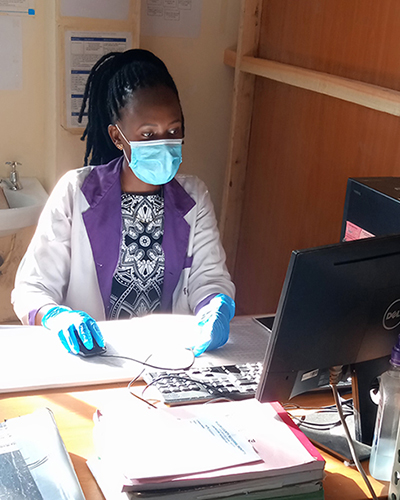
Tuesday, June 02, 2020
UM School of Medicine’s Institute of Human Virology Awarded Grants to Strengthen COVID-19 Response in Sub-Saharan Africa
The Center for International Health, Education and Biosecurity (Ciheb) at the University of Maryland School of Medicine’s Institute of Human Virology was awarded $4 million from the U.S. Centers for Disease Control and Prevention (CDC) to support coronavirus disease 2019 (COVID-19) response activities in Botswana, Nigeria, Malawi, and Mozambique.

Monday, June 24, 2019
UM School of Medicine's Institute of Human Virology Awarded $40 Million Grant to Conduct HIV Population Surveys
Man Charurat, MD, Professor of Medicine, Director, Center for International Health, Education, and Biosecurity (CIHEB), and Director, Division of Epidemiology and Prevention, Institute of Human Virology (IHV) at the University of Maryland School of Medicine (UMSOM), has been awarded a five-year grant from the U.S. Centers for Disease Control and Prevention (CDC) to conduct HIV population-based HIV impact assessments worldwide to measure the progress towards the control of the HIV epidemic
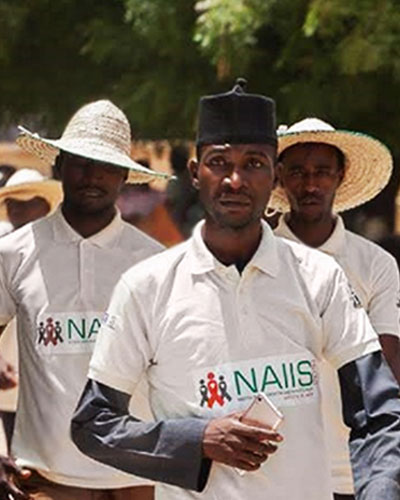
Wednesday, May 01, 2019
Large National Survey Shows Smaller HIV Epidemic in Nigeria Than Once Thought and Highlights Key Gaps
(CDC) The Government of Nigeria, the U.S. President’s Emergency Plan for AIDS Relief (PEPFAR), CDC, and the University of Maryland School of Medicine released new data from the Nigeria HIV/AIDS Indicator and Impact Survey (NAIIS), one of the largest population-based HIV/AIDS household surveys ever conducted. The NAIIS directly measured HIV prevalence and viral load suppression. According to the NAIIS results, the HIV prevalence in Nigeria is lower than previously thought, allowing the country to focus on providing services to the areas of greatest need to control the HIV epidemic.

Monday, December 03, 2018
Institute of Human Virology Names Dr. Man Charurat as Director of the Center for International Health, Education, and Biosecurity
The Institute of Human Virology (IHV) at the University of Maryland School of Medicine today announced the appointment of Man E. Charurat, PhD, MHS, Professor of Medicine and Director of the Division of Epidemiology and Prevention at the IHV as the Director of IHV’s Center for International Health, Education, and Biosecurity (CIHEB). Dr. Charurat will replace Deus Bazira, DrPH, MPH, MBA. The announcement was made by Robert C. Gallo, MD, The Homer & Martha Gudelsky Distinguished Professor in Medicine, Co-Founder and Director of the IHV, and Co-Founder and Director of the Global Virus Network (GVN).

Wednesday, September 20, 2017
Institute of Human Virology Marks National Gay Men's HIV/AIDS Awareness Day on Wednesday, September 27 as HIV/AIDS Increases in Baltimore’s Youth
The proportion of newly reported HIV diagnoses among Maryland youth has tripled over 20 years. The Institute of Human Virology (IHV) at the University of Maryland School of Medicine will host an event Wednesday, September 27 to raise awareness about the rise in HIV/AIDS among Maryland’s youth ages 13-24, particularly among young black men. Of the 252 youth HIV diagnoses in 2015, 82.5 percent were male and 17.5 percent were female in Maryland while 82.1 percent of these new diagnoses were African American. The statistics are astounding considering the availability of prevention therapy.
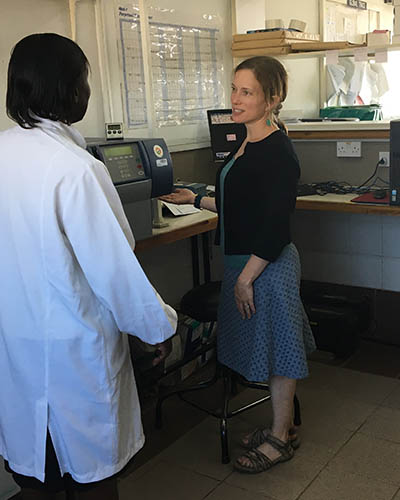
Wednesday, August 02, 2017
UM School of Medicine Receives $2 Million Grant for HIV Research in Malawi
The University of Maryland School of Medicine’s (UM SOM) Institute for Global Health (IGH) and the Institute of Human Virology (IHV) have been awarded a $2 million five-year grant from the Eunice Kennedy Shriver National Institute of Child Health and Human Development to study the impact exposure to HIV has on the immune systems of infants in utero and how those changes impact the ability of infants to fight off infections after birth.
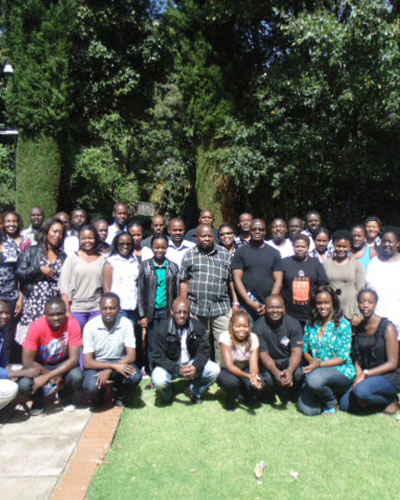
Tuesday, November 22, 2016
IHV Awarded $138M to combat HIV/AIDS in Africa & Launches Center for International Health, Education, & Biosecurity
The Institute of Human Virology (IHV) at the University of Maryland School of Medicine announced today more than $138 million in multiple five-year grants awarded by the Centers for Disease Control and Prevention to combat HIV/AIDS in Kenya, Tanzania, Zambia, and Nigeria. The Institute concurrently announced the formation of the IHV Center for International Health, Education, & Biosecurity (CIHEB), and its newly appointed director, Deus Bazira Mubangizi, DrPH, MBA, MPH, Assistant Professor of Medicine, Director, Center for Health, Education, & Biosecurity, Institute of Human Virology, University of Maryland School of Medicine.
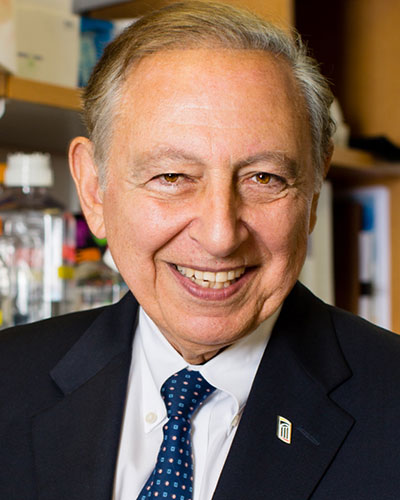
Tuesday, October 25, 2016
"A Call to End HIV/AIDS in America" IHV Director Dr. Robert Gallo's Op-Ed in the Huffington Post
As the new Administration is presented with great challenges facing the United States, one will be a longtime foe, the U.S. HIV/AIDS epidemic. Since President Barack Obama was elected in 2008, I have publicly called on our country’s leaders to utilize the largest global health initiative in history - the President’s Emergency Plan for AIDS Relief (PEPFAR) - as a model to address the U.S. epidemic.

